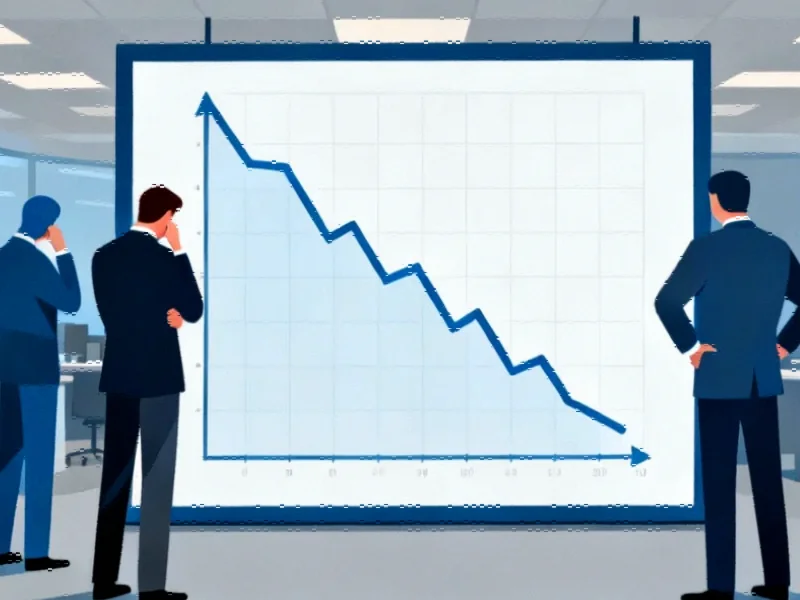Investment Titan Backs Musk’s Unprecedented Pay Package
ARK Invest founder Cathie Wood has publicly declared her expectation that Elon Musk’s proposed $1 trillion compensation package will receive “decisive” approval from Tesla shareholders, despite mounting opposition from institutional advisory firms. Wood, a long-standing Tesla bull, expressed her confidence via social media platform X, drawing parallels to the 2018 shareholder vote that originally approved Musk’s compensation structure.
“When shareholders first voted on Elon Musk’s 2018 pay package, Tesla was not in any index, and the pay package won decisively,” Wood noted in her post. “Now Tesla is 2.4% of the S&P 500, not enough for index funds to swing the vote, and I believe that Elon’s new package will win decisively.”
The Stakes: $1 Trillion for $8.5 Trillion Valuation
The proposed compensation package, scheduled for shareholder vote on November 6, represents what would be the largest corporate pay deal in history. Musk stands to receive up to $1 trillion in stock if he successfully guides Tesla to achieve extraordinary performance targets, including reaching an $8.5 trillion market valuation by 2035 and hitting 12 specific operational milestones.
These ambitious targets span across Tesla’s entire business ecosystem, from selling 12 million vehicles and one million humanoid robots to launching a million robotaxis and increasing adjusted earnings from $16.6 billion in 2024 to $400 billion. The company’s board has explicitly warned that rejection of the package could lead to reduced involvement from Musk or potentially his complete departure from the company.
Institutional Opposition Meets Retail Investor Support
Despite Wood’s optimism, the proposal faces significant headwinds from influential proxy advisory firms. Institutional Shareholder Services (ISS) has recommended investors vote against the package, citing its unprecedented scale and insufficient safeguards. Other industry developments in corporate governance show increasing scrutiny of executive compensation packages.
Wood launched a pointed critique against the institutional investment system that amplifies these concerns. “Isn’t it sad, if not damning, that institutional shareholders rely on proxy firms to tell them how they should vote?” she wrote in a follow-up post. “Index funds do no fundamental research, yet dominate institutional voting. Index-based investing is a form of socialism. Our investment system is broken.”
Musk immediately endorsed Wood’s perspective, responding “Absolutely” to her social media post. This alignment between the Tesla CEO and one of his most consistent Wall Street supporters highlights the ongoing battle between traditional corporate governance standards and disruptive innovation models.
Broader Implications for Corporate Governance
The debate over Musk’s compensation occurs against a backdrop of significant market trends in sustainable investing and corporate responsibility. Meanwhile, technological advancements in other sectors, such as the recent technology transforming gaming experiences, demonstrate how innovation continues to reshape various industries.
Wood has consistently defended Musk’s compensation as appropriate reward for transformative innovation rather than corporate excess. She previously characterized the Delaware court’s decision to strike down Musk’s 2018 package as “un-American” and called for appellate intervention. Her latest comprehensive analysis of the voting dynamics suggests she remains confident in shareholder support despite institutional skepticism.
The Future of Tesla and Musk’s Growing Influence
Approval of the new compensation package would substantially increase Musk’s stake in Tesla from 13% to nearly 29%, granting him significantly greater control as the company accelerates its investments in artificial intelligence, robotics, and autonomous driving technology. This expansion into cutting-edge fields aligns with broader related innovations across the technology sector.
The compensation debate also intersects with growing concerns about financial stability in the face of global challenges, though Wood maintains that Tesla’s mission addresses these very issues through sustainable transportation and energy solutions.
Wood’s prediction hinges on her belief that retail investors will ultimately determine the outcome. “Retail investors are likely to dominate the vote once again,” she asserted, concluding her argument with a patriotic “America!” that underscores her confidence in individual shareholders over institutional intermediaries.
As the November 6 vote approaches, the financial world watches closely, recognizing that the outcome will not only shape Tesla’s future but potentially redefine standards for executive compensation and corporate governance in the innovation economy.
This article aggregates information from publicly available sources. All trademarks and copyrights belong to their respective owners.
Note: Featured image is for illustrative purposes only and does not represent any specific product, service, or entity mentioned in this article.



